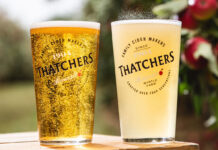A planned approach to new beer products is key, say brewers

CRAFT beer continues to prove popular with Scottish consumers, but introducing or expanding a craft range requires careful consideration, say brewers.
Publicans were advised to consider factors such as provenance and quality when selecting craft beer.
“There are some great ales and at a lot of different price points,” said Gerald Michaluk of Arran Brew. “If you want to distinguish your selection and stand out don’t simply buy on price buy on value and sell-ability.”
Advising on the size and makeup of a craft beer range is difficult, said brewers, as every outlet is different.
“It is important to consider which breweries and beer styles are currently popular as well as the pub’s demographic,” said Ben Bullen of Elixir Brew Co. “Are customers looking for something really different or just a good quality hoppy session beer?”
Understanding the pub’s customer base is key, then. And Jeremy Houston, national account manager at Innis & Gunn, said a direct approach is best.
“Engage with customers and find out what they’d like to see in a new range, both packaged and draught,” he said.
“Then scope out the competition in your area to see who’s doing what and how. Can you improve upon that or offer a point of difference?”
Talking to the brewers themselves is also crucial to understanding the available products.
Richard McLelland, director of sales at Williams Brothers, advised publicans to use brewers “as a consulting soundboard”.
“We all work well together and although there is a healthy competitive spirit there is also a high level of respect for each other and you will often find us recommending each others products or working together on installs and even assisting in the distribution,” he said.
And Jo Stewart, director of sales and marketing at Stewart Brewing, said a close relationship between pub and brewery can prove invaluable in building a craft range.
“There’s quite a lot to choose from now,” she said. “I think a lot of it is about relationships. We’re very locally focused and we try to have a personal relationship with the people we supply.”
Regular contact with a brewer can also help ensure staff are knowledgeable on the products.
“The first and most important question is always: do you know the beers you plan to serve and do your staff?” said Fergus Clark, managing director at Inveralmond Brewery. “Do you care? Because if you don’t, it’s unlikely your customer will.”
Craft beer is becoming a broad category, encompassing bottled, cask and craft keg, and while the bottled and keg formats are the newest iterations, Shepherd Neame account manager David O’Neill said there is still plenty of room for traditional cask ale.
“As younger generations become less hostile to cask products, more bars are becoming more familiar with cask alternatives to everyday products,” said O’Neill.
























